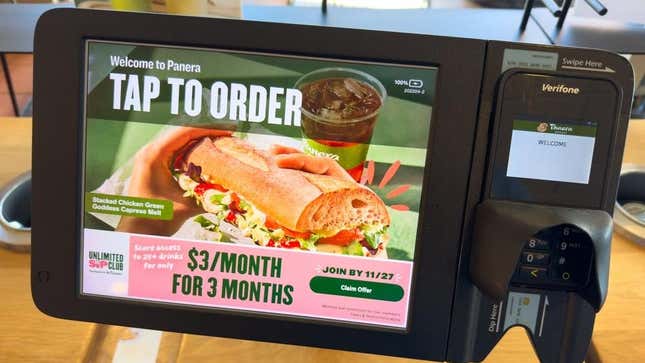
Since the height of the pandemic, the wages of fast food workers and restaurant industry employees in general have been thrust into the spotlight. California Gov. Gavin Newsom recently signed a bill that would raise the minimum wage for fast food workers in the state from $16 to $20 an hour starting April 1, 2024. However, the staff of Panera Bread’s California locations were caught up in the particulars of the deal.
California Assembly Bill 1228 replaces the 2022 FAST Recovery Act, which would have brought the minimum wage up to $22 an hour. This new version applies to “limited-service restaurants consisting of more than 60 establishments nationally that share a common brand.” Initially, it was debated whether workers at Panera Bread, being a café-style quick service restaurant and not strictly a fast food chain, would fall under this new legislation.
AB1228 seems to contain an oddly specific exemption for businesses that bake bread. More specifically, it states that the blanket category of “fast food restaurant” does not apply to any businesses that “operate a bakery that produces for sale on the establishment’s premises bread… This exemption applies only where the establishment produces for sale bread as a stand-alone menu item, and does not apply if the bread is available for sale solely as part of another menu item.” Panera does indeed sell loaves of bread in its restaurants.
The bill also calls for the establishment of a fast food council, one with the authority to create and set rules about working conditions and training for the state’s fast food employees. If Panera were to be exempt from the bill, it would not have to abide by the standards set by the new council.
Bloomberg first reported that the very specific nature of this exemption raised suspicions regarding who it benefits and why it’s included in the bill. Greg Flynn, a billionaire who owns 24 Panera restaurants in California, is a longtime donor to Newsom’s political campaign and has had a business relationship with the governor in the past. Both Flynn and Newsom have denied any claims of Flynn’s involvement in the creation of the exemption.
Flynn issued a statement to Eater Los Angeles explaining that he was opposed to AB1228, but only because he thought the bill was being too broadly applied to restaurants beyond fast food joints and doesn’t believe Panera should have been part of it. Still, he goes on to say in part:
“To be clear, at no time did I ask for an exemption or special considerations. In fact, the idea never even occurred to me and I was surprised when the exemption appeared in the final legislation.
Such a narrow exemption has very little practical value. As it applies to all of our peer restaurants in the fast casual segment, we will almost certainly have to offer market value wages in order to attract and retain employees.”
Despite the alleged connections between Flynn, Newsom, and this legislation, it is now being reported that Panera wouldn’t necessarily fall under the bread exemption, after all: The bill states the bread must be made on-premises, and Panera actually makes its dough off-premises to be baked at the restaurant. Panera has not yet commented publicly on the matter.
A version of this article originally appeared on The Takeout.